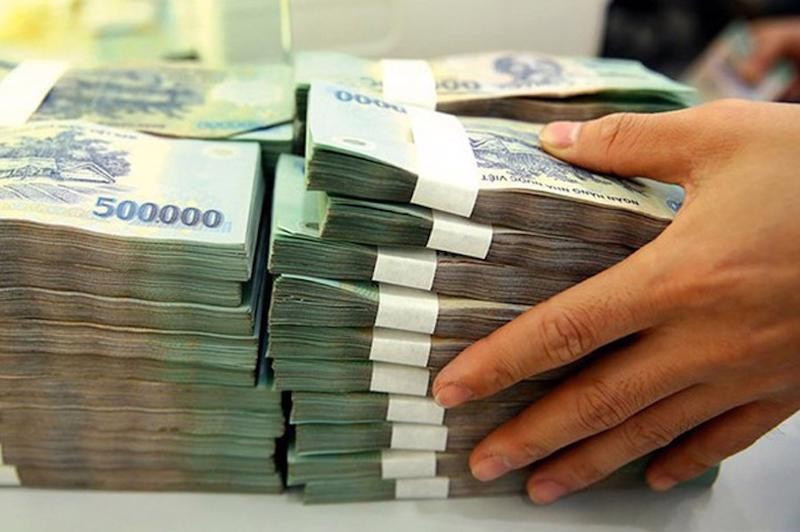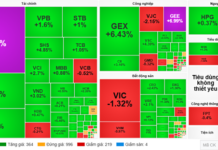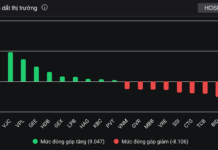Continuous Auction of Bad Debt in the Billions
VietinBank Gia Lai has announced the auction of bad debt belonging to Duc Long Dung Quat JSC, a company within the ecosystem of the Duc Long Gia Lai Group.
The debt up for auction includes all remaining principal and interest owed (including overdue interest) by Duc Long Dung Quat JSC to VietinBank Gia Lai, stemming from a credit contract signed in 2016.
As of May 19, 2025, the total outstanding debt of Duc Long Dung Quat JSC at VietinBank Gia Lai exceeded VND 434.6 billion. This comprised VND 277.6 billion in principal debt and VND 157 billion in interest.
VietinBank has set an initial price of nearly VND 279.5 billion, equivalent to the value of the principal debt.
BIDV has also announced the auction of a hundred-billion debt of Ha Long Port Business JSC and Southeast Asia Logistics JSC in Quang Ninh province.
The total debt, as of July 14, 2025, is estimated at VND 173 billion. This includes over VND 96 billion owed by Ha Long Port Business JSC and nearly VND 76.87 billion (including principal, interest, and overdue interest penalties) owed by Southeast Asia Logistics JSC.
The starting price for the debt of these two companies (sold as a package, not individually) is nearly VND 155.66 billion.
According to statistics, the total bad debt of 28 banks as of the end of June 2025 amounted to VND 294,215 billion, an increase of over 12% compared to the beginning of the year. Most of this increase came from the substandard debt group (group 3) and the group with a high probability of loss (group 5).
Notably, VPBank is among the banks with a significant increase in bad debt, reaching VND 32,945 billion as of June 30, an increase of over VND 3,876 billion (13.3%) compared to the beginning of the year. SHB also experienced a nearly VND 1,580 billion rise in bad debt during the same period.

Bad debt in banks is on the rise.
Among smaller banks, PGBank and Nam A Bank also witnessed significant increases in bad debt, with 42.5% and 40% growth, respectively.
According to Wichart data, in the first six months of the year, the non-performing loan balance (from group 3 to group 5) of the entire banking industry increased by over 16% compared to the end of 2024, reaching a record high of VND 267,329 billion. In contrast, the balance of risk provisions of the banks increased by only 3.2% during the same period, reaching VND 213,393 billion.
At the end of July 2024, the ratio of non-performing loans (including bad debts of banks subject to mandatory purchase and banks under special control) stood at 4.75%, up from 4.55% at the end of 2023 and about 2% at the end of 2022.
Thus, while the bad debt of credit institutions has slightly decreased compared to last year, according to the State Bank of Vietnam, it has remained high over the past time, concentrated in a number of weak banks.
Banks Struggle to Handle Bad Debt
Despite the high levels of bad debt, its handling has faced numerous challenges in practice. Commercial banks, debt trading and handling organizations, and the Vietnam Banks Association have shared that some provisions of Resolution No. 42 have not been legalized in the Law on Credit Institutions. This has created a stagnation in handling bad debts and their collateral.
Banks have reflected on several obstacles that hinder the handling of bad debts. Therefore, the banking industry proposes three contents regarding the legalization of regulations on the right to seize collateral; regulations on the seizure of collateral of the executing party, and regulations on the return of collateral that is evidence in criminal cases. It also suggests supplementing regulations on the return of collateral that is evidence of administrative violations in administrative violation cases.
Economist Nguyen Huu Huan stated that the large increase in bad debt while credit capital disbursement is high is a concerning issue, especially when some banks have a bad debt ratio above 3% – the safety warning threshold. Previously, bad debt had shown signs of increasing from the first quarter of this year due to the expiration of Circular No. 02/2023 on loan term restructuring and debt group maintenance to support customers facing difficulties. Now, with the exposure of bad debts, many businesses are still struggling with production and business operations. On the other hand, the real estate market has improved but not evenly, causing many debts in this field to turn bad.
“Bad debt is a worrying issue for the economy,” Huan emphasized. “Therefore, it is necessary to implement simultaneous solutions, from regulating and controlling credit capital in the economy, urgently handling bad debt, and continuing to restructure weak banks to further consolidate and develop a healthy banking system.”
From the perspective of the monetary policy control agency, the State Bank of Vietnam affirmed that the restructuring of credit institutions in association with bad debt handling has been strongly implemented, contributing to maintaining the stability and safety of the system.
In the coming months, the banking industry will continue to implement the Project on Restructuring the System of Credit Institutions in association with Bad Debt Handling for the 2021-2025 period; promote bad debt handling; and deploy measures to prevent and limit the formation of new bad debts.
“Major Bank Auctions Off $7 Million Debt of Real Estate Tycoon in Quang Ninh Province”
The BIDV is auctioning off a combined debt of VND 173 billion from the Ha Long Port Business Joint Stock Company and the Southeast Asia Logistics Joint Stock Company.
The Largest Shareholder Pledges All EVS Shares to Back EVS Securities Loan.
Mr. Tien Vu Manh, a prominent member of the Board of Directors, has demonstrated his unwavering commitment to the company by pledging his entire holdings of 16 million EVS shares, along with associated assets, as collateral for a loan taken by EVS Securities. This bold move underscores Mr. Manh’s strong belief in the company’s prospects and his willingness to personally ensure its financial stability.










































